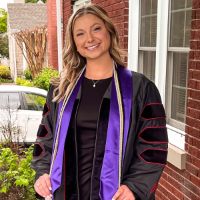Oldham County, KY Felony Lawyers
Sponsored Law Firm
-
 x
x

Click For More Info:
-
Law Office of Mark S. Guralnick
55 Madison Avenue 4th Floor Morristown, NJ 07960» view mapCriminal Defense Law Dedicated. Fearless. Successful.
Mark S. Guralnick and his legal team have helped clients throughout the USA and across the world by applying unparalleled dedication and hard work to each case.
800-399-8371
Not enough matches for Oldham Felony lawyer.
Below are all Oldham lawyers.
Sean P. Paris
✓ VERIFIEDDivorce & Family Law, Litigation, Real Estate, Estate, Criminal
Serious representation for when it matters the most. Call me now!
Mr. Paris has over 24 years' experience in both family law and civil litigation matters. He has received a Martindale-Hubbell top AV rating for attorn... (more)
Jazmyn Sierra Wood
✓ VERIFIEDDivorce & Family Law, Litigation, Real Estate, Criminal
Jazmyn Wood is a practicing lawyer in the state of Kentucky handling family law matters.
Walter Matthew Hudson
Wills & Probate, Divorce & Family Law, Credit & Debt, Bankruptcy
Status: In Good Standing
Carol Schureck Petitt
Lawsuit & Dispute, Civil & Human Rights, Medical Malpractice, Civil Rights
Status: In Good Standing
Kyle Meredith Vaughn
Construction Contracts, State & Local Agencies, Employee Rights, Civil Rights, Estate
Status: In Good Standing
David Lawrence Reichert
Business, Corporate, Securities, Administrative Law, Securities Regulation
Status: In Good Standing
Raymond R Roelandt
Real Estate, Dispute Resolution, Lawsuit & Dispute, Trusts
Status: In Good Standing
 Mark Guralnick Morristown, NJ
Mark Guralnick Morristown, NJ AboutLaw Office of Mark S. Guralnick
AboutLaw Office of Mark S. Guralnick Practice AreasExpertise
Practice AreasExpertise


